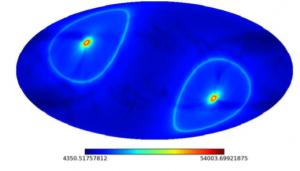
Sir Roger Penrose is, without doubt, one of the most interesting polymaths of recent history. Even where I find his ideas fantastical, they are most definitely worth reading and understanding. Sean Carroll’s Mindscape podcast interview with Penrose from early January of this year is a treat.
I’ve previously discussed the Penrose-Hameroff conjectures concerning wave function collapse and their implication of quantum operations in the micro-tubule structure of the brain. I also used the conjecture in a short story. But the core driver for Penrose’s original conjecture, namely that algorithmic processes can’t explain human consciousness, has always been a claim in search of support. Equally difficult is pushing consciousness into the sphere of quantum phenomena that tend to show random, rather than directed, behavior. Randomness doesn’t clearly relate to the “hard problem” of consciousness that is about the experience of being conscious.
But take the idea that since mathematicians can prove things that are blocked by Gödel incompleteness, our brains must be different from Turing machines or collections of them. Our brains are likely messy and not theorem proving machines per se, despite operating according to logico-causal processes. Indeed, throw in an active analog to biological evolution based on variation-and-retention of ideas and insights that might actually have a bit of pseudo-randomness associated with it, and there is no reason to doubt that we are capable of the kind of system transcendence that Penrose is looking for.
Note that this doesn’t in any way impact the other horn of Penrose-Hameroff concerning the measurement problem in quantum theory, but there is no reason to suspect that quantum collapse is necessary for consciousness. It might flow the other way, though, and Penrose has created the Penrose Institute to look experimentally for evidence about these effects. Specifically, he cites Bose-Einstein condensates as a candidate experimental platform.
The other detail in the Carroll interview is about Conformal Cyclic Cosmology (CCC), Penrose’s theory about the cosmos (to distinguish with the universe per se, though Penrose uses universe combined with aeons in his description). In this model, driven by topological reanalysis of Einsteinian general relativity, aeons connect together by Big Bang events and, critically, there is the possibility of experimental verification of the shadow of black holes from previous aeons in the cosmic background radiation. Given that we have good maps of the cosmic background radiation, looking for small, predicted and yet anomalous circle artifacts might demonstrate CCC. Indeed, there are some early claimed results (as well as counter-claims), but nevertheless the availability of experimental possibilities increases the interest level in the theory, just like the quantum consciousness work that is in early stages.
I’ve been simultaneously following an online debate on “classic” apologetics arguments at Richard Carrier’s blog. Sadly, for me, I’ve already lost interest because ideas like Kalam or the Argument from Objective Morality are completely vacated by even a casual analysis of the premises (Fine Tuning might be more interesting, admittedly, when they get to it). I have to admire Richard’s persistence and careful work in analyzing the modern versions of the claims, but also have to be immediately dismissive of the apologist side because it lacks the central requirement of indifference to the outcome.
While Penrose is passionate and driven, I have no doubt that a better theory combined with experimental outcomes will only motivate him further to understand our universe as it is, not as he wishes it were.
Edits and updates